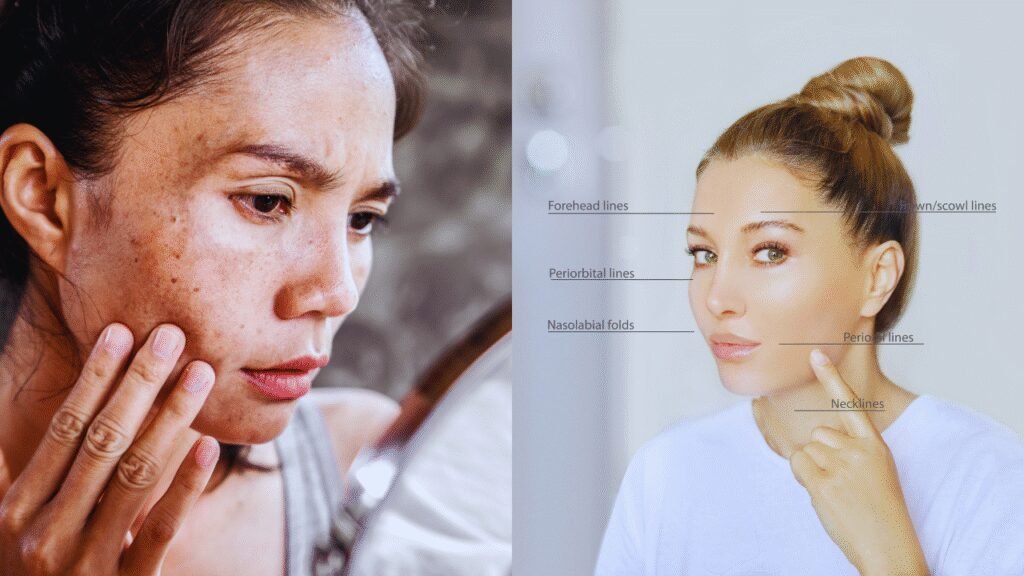Understanding Skin Age: What You Need to Know
What is Skin Age?
Have you ever looked at two individuals of the same chronological age and noticed they look strikingly different? This phenomenon is explained by the concept of "skin age," which can vary significantly based on lifestyle, genetics, and overall health. While you may be 35 years old on paper, your skin could be behaving like it’s 25—or perhaps even looking closer to 45.
"Skin is the largest organ of the body and often reflects what is happening inside you," says Dr. Prachi B. Bodkhe, a dermatologist at Envi Aesthetics. It’s essential to understand that your skin’s appearance is not solely determined by your age.
Factors Affecting Skin Age
Your skin’s age can be influenced by several key factors:
- Genetics: Your inherent traits play a significant role in how your skin ages.
- Lifestyle Choices: Smoking, alcohol consumption, and a lack of exercise can accelerate skin ageing.
- Diet: A poor diet devoid of essential nutrients can adversely affect skin health.
- Environment: Pollution and sun exposure are significant contributors to skin damage.
- Daily Habits: A consistent skincare routine including cleansing and moisturizing can make a substantial difference.
Why Your Passport Doesn’t Define Your Skin
Dermatologists emphasize assessing your skin condition over your age. Two people in their 40s can look dramatically different due to various factors, including lifestyle and skincare practices. For instance, wearing heavy spectacles over the years can lead to under-eye changes, while fine lines might be attributed more to digital eye strain than to age itself.
The Unique Skin Profile
"Each individual has a unique skin profile," explains Dr. Meghana Reddy Endela, Consultant Dermatologist at Zennara Clinics, Hyderabad. Skin age relies on a combination of:
- Genetics
- Sun Exposure: Some individuals in their 20s may show early signs of sun damage simply due to neglecting sun protection.
- Chronic Skin Conditions: Issues like melasma, acne, eczema, or rosacea can arise at any age, requiring specific care rather than a one-size-fits-all approach.
What Dermatologists Want You to Know
-
Start Using Sunscreen Early: Regular sunscreen application is non-negotiable. According to Dr. Meghana, “It’s one of the most effective ways to delay visible signs of ageing such as fine lines, spots, and pigmentation.”
-
Consistency Over Complexity: A straightforward, yet consistent skincare routine with proven ingredients like retinoids, hyaluronic acid, and antioxidants can be more beneficial than constantly switching to trendy products.
-
Avoid Self-Prescribing: “One thing we always caution against is using over-the-counter or influencer-suggested creams for skin concerns," warns Dr. Meghana. These could potentially do more harm than good.
-
Hydrate and Nourish: Especially for the delicate eye area. While expensive eye creams can be tempting, "simple hydration and a well-formulated product used regularly are far more effective," says Dr. Bodkhe.
- Lifestyle is Key: Your diet, sleep, stress levels, exercise, and even your smoking habits deeply influence your skin’s age alongside any serums you may apply.
Conclusion
Understanding your skin age can empower you to make informed decisions about your skincare and lifestyle. By focusing on consistent skincare, sun protection, and healthy habits, you can dramatically improve your skin’s appearance.
To learn more about effective skincare practices and innovative treatments, explore our resources on skin health and dermatological care. Your journey towards healthier skin starts today!


